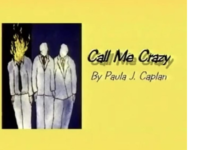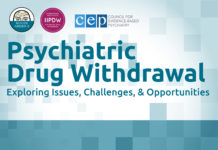On Human Nature and Its Implications for the Mind-Body Problem
Our desperation to view mental disorder as a disease leads to unhelpful assumptions that it is somehow distinct from the ‘true’ self, encourag[ing] the supposition that it can be treated or cured without changing the individual’s personality. This has led to a huge programme of medically-disguised social engineering, in which people are encouraged to change the way they think and behave, by being persuaded that they have a medical condition that needs to be eliminated.
Insane Medicine, Chapter 6: Neoliberalism and the Compare-and-Compete Society
Neoliberalism teaches people that suffering has nothing to do with the inequality they experience, but that it comes from their own individual failures of body and mind, and requires "experts" to identify and treat it.
Review of “Call me Crazy”: A play by Paula Caplan PhD
When I was invited to review “Call me Crazy”, written and directed by Paula J Caplan, a clinical and research psychologist, playwright, author, advocate, filmmaker and activist from the US, I was aware that this was the first play she had ever written and that it had won second place in a national playwriting competition.
Exploring Psychiatric Drug Withdrawal: A Town Hall Discussion Series
Our new discussion series aims to explore what we do and don’t know about safe withdrawal from antidepressants, antipsychotics, benzodiazepines and stimulants. We will seek to present and explore new understandings emerging from professional and lived-experience communities. We will discuss the knowledge, skills and experience necessary to support those having difficulty getting off psychiatric drugs.
Insane Medicine, Chapter 4: The Manufacture of Autism Spectrum Disorders (ASD) (Part 2)
No one has come near to finding a genetic basis or a characteristic neurological abnormality for autism, and as a result there is no biological marker or brain scan used to diagnose ASD.





